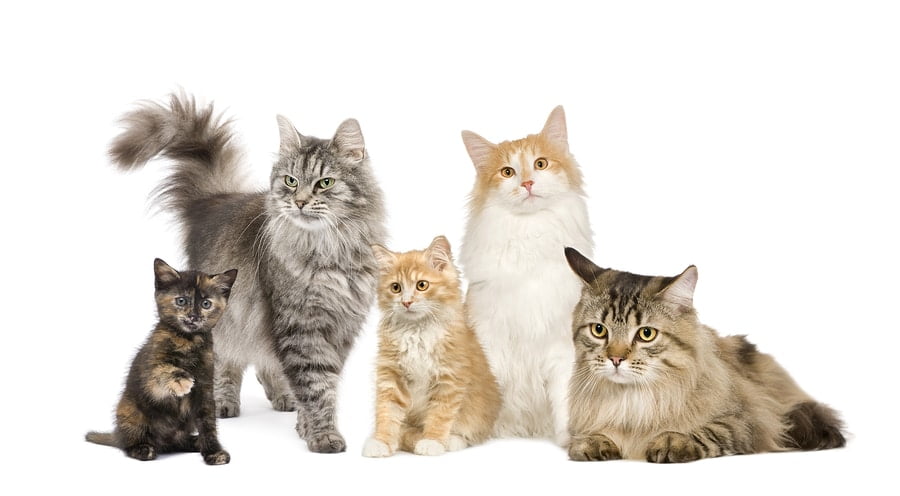
Thinking about something petty? If you are considering enhancing your lifestyle with a pet then you are about to enter into a relationship that will cause you constant delight and you will wonder how you survived without your new buddy. We get something from our pets that we just don’t seem to get from any other source, not even our fellow human beings.
Perhaps you could do with a best buddy and are wondering what type of pet would best suit you and your lifestyle. Let’s look at some options.
Is a Dog For Me?
The advantage of dogs as pets stems from their exceptionally faithful personality. Dogs are pack animals and thereby are very social creatures. They prosper from a balanced relationship with their owners and for every gram of affection given to them, they give a kilogram back.
They are usually active animals and will passionately enjoy daily jaunts around the suburbs with their owners, where both benefit from the exercise. They are ultimately trainable, entertaining and exceptional company.
There are a huge variety of breeds available that will suit all tastes. They range from the diminutive but manipulative three kilogram Chihuahuas to the huge and massive 100kg St Bernards.
Health wise, dogs are one of the more expensive animals to maintain, and the bigger they are the more they cost. You will need to be prepared to outlay about $2500 per year for their routine care and feeding, particularly in the first year of life. Food is the single biggest recurrent cost with dog ownership. Flea control and heartworm prevention are probably the next largest recurring costs. .

To buy a dog, you will spend from nothing to several thousand dollars, with purebreds naturally and ‘designer breeds’ being more expensive. However, if you are concerned about the purchase price of your new house guest, perhaps you should rethink whether a pet is for you. The purchase price is tiny compared to the potential costs of future care.
For an exceptional deal, visit the RSPCA or local animal shelter where you can adopt a wonderful homeless hound. Usually they are vaccinated, de-sexed, and heartworm free.
Cats as Pets
Cats are wonderful pets. They are superior and intelligent in nature, graceful and mischievously playful. They are masters of their own destiny and are often aloof and independent. Unlike dogs, they are not pack animals, but practice a more solitary lifestyle which is why they are less dependent on their owners and why they appear more aloof. They are less active than dogs (usually!!) and do not usually need or tolerate walks through the suburbs as well as dogs. They are therefore well suited to a family with a less active lifestyle.

They are the only true ‘self-cleaning’ items in your household and are usually very tidy in their habits. Unlike dogs they bury their droppings which is why they can be kept permanently inside with litter trays.
Keeping cats inside is preferable, especially if you live near a busy road or in an area with a vulnerable population of wildlife.
Health wise, they tend to suffer fewer disease problems when compared with dogs. Cats are better suited to people who lead busy lifestyles. If you are away from home for long periods and are worried about the effect of this on a dog, then consider a feline as a friend. A cat will tolerate separation from you in a much better fashion than a dog.
A cat will cost around $1200 a year to maintain in proper health.
Reptiles as Pets
If you are looking for something different, have you considered having a reptile as a pet?
Reptiles kept as pets include animals such as snakes, lizards and turtles. They have dry skin covered with scales and, mostly, lay eggs.
Lizards, such as Blue Tongues and the Shingle Back Lizard, are gentle, lazy critters. They represent a direct link with the dinosaur era and in that fact alone they are fascinating animals.

While they are interesting pets, reptiles do have particular requirements with respect to their housing and feeding which makes them a bit more difficult to manage than the standard pet.
As for snakes, they fascinate many people, and equally as many are horrified by them. If you are considering keeping pet snakes, then please look before you leap – most will bite and some snakes are obviously dangerous. Keeping venomous snakes as pets is foolish.
What Laws Relate to the Keeping of Reptiles?
Herpetology, the keeping of reptiles and amphibians, is covered by your state Nature Conservation Act or similar legislation. Local Authority By-Laws may also restrict the ownership of reptiles. If you are considering keeping reptiles you must ring the relevant state and local authorities to ensure you are able to keep the animals you are interested in.
Housing
Careful attention to housing and, in particular, temperature is one of the most important aspects of herpetology. Reptiles are cold-blood animals. This means that they must draw their heat from their environment and this must be provided for them.
It is important that you know the temperature requirements of the individual species and, then, that the temperature characteristics of the enclosure are determined to see if they match. If you are establishing the cage in winter, be careful that overheating of the enclosure does not occur in summer.
Reptiles also need humidity kept above 50%.
Feeding reptiles is certainly different from feeding other types of pets. They eat an entertaining array of fare.
First, lizards only need to be fed twice per week. They can become obese easily – especially Lace Monitors which are ‘piggy’ lizards.
Herpetologists usually feed large lizards on rats, mice, chickens, chopped lean meat and dog food whereas smaller lizards eat cockroaches, grasshoppers and similar gobbley delights. Some lizards also each vegetable matter.
Mice and Rats as Pets
Have you no room for a pet and no backyard? Do you want a pet but don’t want to spend a fortune on buying and feeding it? Do you dislike noisy, demanding pets that shed hair on your lounge suite and chase cars, and bring in dead birds? Maybe a mouse or rat is just the pet for you.
Mice and rats make fascinating pets. They are social, gentle creatures and cost very little to purchase. They are also cheap and easy to maintain.
They can be housed in a variety of containers such as metal or strong plastic cages. An old aquarium with good ventilation makes a good house as the mouse or rat cannot climb the glass walls.
Mesh cages are suitable but they must have a solid floor.
Bedding should be provided for the rodents and this can be soft paper, wood chips, shavings, or cat litter, especially the paper or lucerne varieties. Sawdust is too fine and dusty and is best avoided.
Although mice are very social creatures, male mice will usually fight if housed together. Therefore, males should be housed in separate containers. Male rats, on the other hand, are more tolerant of each other, and several males and females can be housed in the one cage.
Rats are usually regarded as being more docile and intelligent than mice. They seem to enjoy being handled more, they live longer and are more ‘robust’. They also seem to smell less.
Pet ownership is a commitment for life. Don’t rush your decisions and ask plenty of questions. That way, you will be well prepared and have very few problems.
